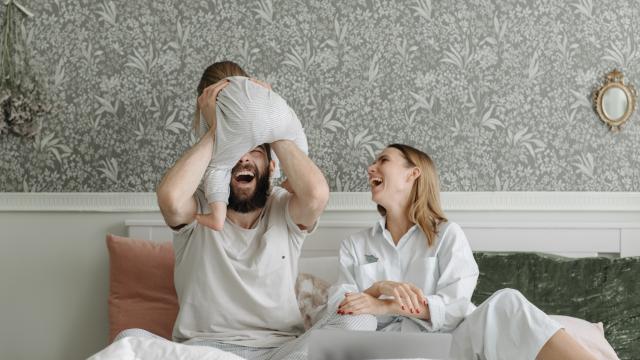Main
Humidity
The ideal humidity for sleep
A healthy sleep is vital for body and mind. Because only if we sleep well and sufficiently, we draw new energy and start the next day rested and efficient. However, if the sleep rhythm is disturbed, this makes us tired, powerless and unfocused; in the longer term, this can lead to significant health problems.
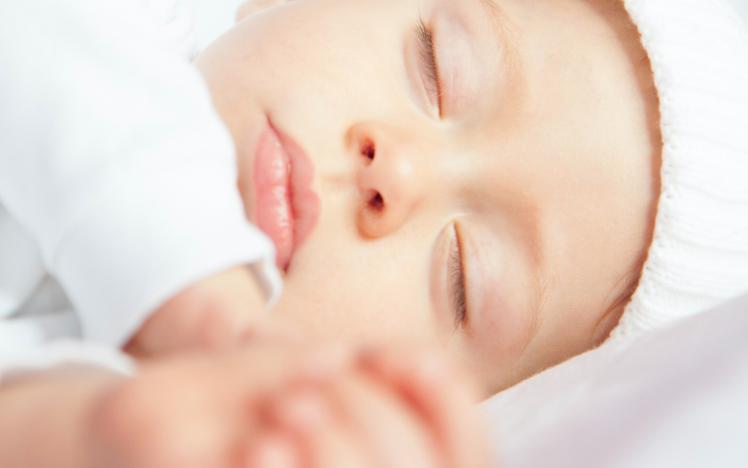
There are numerous reasons for poor sleep. Often physical or psychological suffering, wrong habits or stress can be a cause.
But did you know that dry air can have a negative impact on sleep quality?
In addition to a darker, quiet, pleasant environment and a rather cooler room temperature (18 - 19°C are recommended in a bedroom), an optimal relative humidity (RH) of 40 - 60% also contributes to an undisturbed and healthy sleep.
Why is that?
Air that is too dry may make it harder to breathe, contributes to respiratory infections and irritates the airways: nose bleeds or a hoarse dry throat are very obvious signs. People often notice that being in a space with "dry air" irritates their eyes and dryes out the skin, making it uncomfortably itchy. Sometimes the telling signs are more discreet, the effect still similar.
Everywhere, independently of climate, research suggests that 40-60%RH is the best relative humidity for sleeping. Besides lessening the snoring and the fussing, it is also helpful for reducing indoor pollutants that can also interfere with sleep of old or young ones.
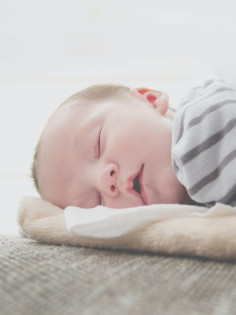
Not only babies' sleep is affected negatively by dry air.
Airborne dust and mites can be mitigated by control of relative air humidity: the humid air, precisely the water vapour will contain and collect airborne dust and mites. Mites are an important source of allergens that contribute to allergic symptoms. Naturally, each individual invisible water droplet can absorb dust particles and fibers from the air, gradually encasing the dust and allowing it to fall to the ground – effectively removing the dust from the air. So to speak, humidity acts like a natural air filter.
Only if the humidity in the bedroom is between 40 - 60%, the mucous membranes of our respiratory tract are optimally moistened.
However, if the humidity is too low then they dry out, so we switch more frequently to mouth-breathing, which then additionally dries out the throat area, we might get an irritative cough, cannot breath properly, some of us are snoring, we feel uncomfortable and get bad night sleep. The next morning you feel like you've been wheeled.
If the sleep problems persist for a long time, we risk numerous negative effects on our health: it can interfere with the healthy functioning of our immune system. Our ability to react decreases, same does our ability to concentrate. This stresses our body and we feel completely knocked out over time. But other serious consequences such as elevated blood sugar levels, cardiovasculardiseases and the risk of a weakened immune system can also occur more frequently.
In order to sleep better at night, you should maybe first and easiest rule out that your sleep problems are not due to too low humidity in your bedroom. You can easily check this with an unexpensive hygrometer.
If the RH is below the minimum value of 40%, we recommend increasing the humidity in your bedroom to ensure a restful sleeping climate.
You must be aware of the surpisingly vast volumes of water you’d need to evaporate in order to get your air to that optimum level during the colder season!
You may want to have a play with the App revealing the physics and science of healthy humidity in your own space: Link.
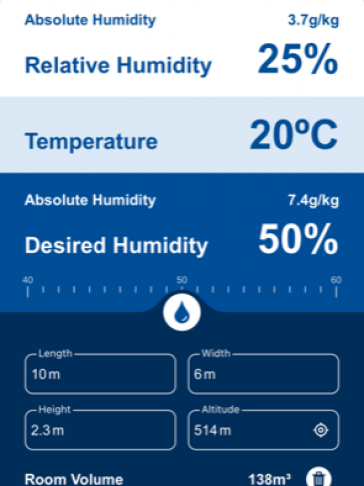
Humidity Checker App on the App Store
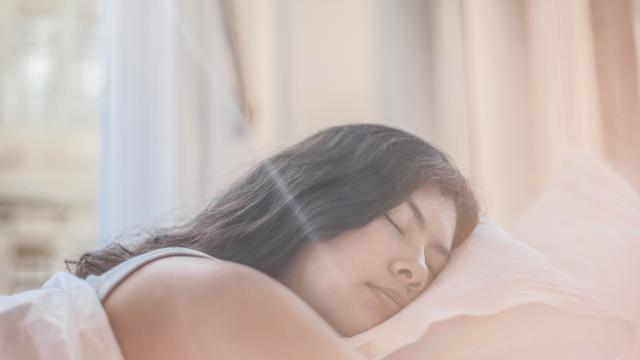
How can you increase the humidity to the healthy range so you all can sleep well?
Using a humidifier to add moisture to your oasis of rest and relaxation. It could be a small mobile one, or even better, a professional, permanently installed solution. There are air humidification systems customized for your whole home, which allow neatly regulating the indoor humidity to your preferred level within the healthy range of 40-60% RH all throughout the humidification season (about 6 months a year!) for the health benefits and peace of mind: impeccable hygiene, no cleaning, no refilling, no white dust, no scalding due to hot steam. These are actually quite easy to install and control - some are even remotely controlled and monitored through a smartphone app. Worth considering such solutions as this investment in your overall health and wellbeing will keep on giving.
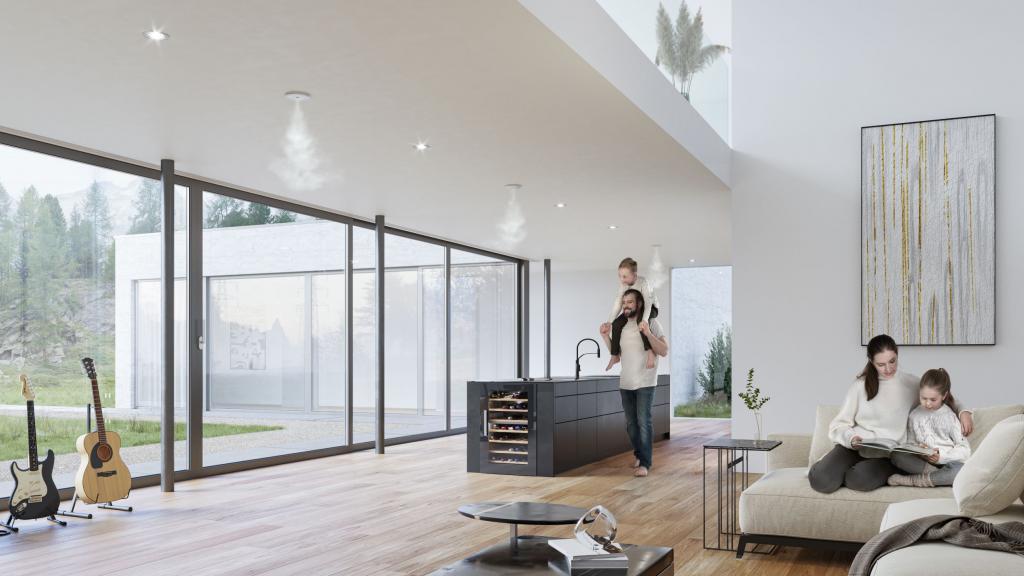
Another tip is to turn down the heat. Indoor heating causes moisture in the air to evaporate, quickly causing a room to dry out. Cold air can “hold” more moisture so turning down the thermostat a few degrees will help maintain higher moisture levels.
Did you know?
Even if two bedrooms have the same amount of moisture in the air (absolute humidity), a colder room will have a higher relative humidity than a warmer room.
Maybe add some plants? Plants may slightly increase humidity in the room through evaporation but you also need to regularly mist plants with water and look after them, of course.
Another strategy is to place trays of water in various points in the room, especially near the heat source, to help with the evaporation process.
With the optimal humidity in the bedroom, your sleep and overall health and thus the quality of life can be significantly improved. So you can start the day rested, fit and energized.
